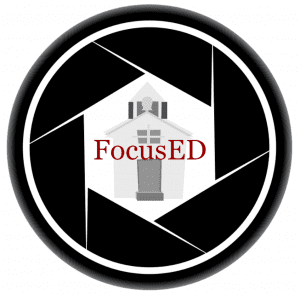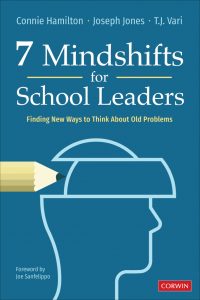
Season 3, Episode 12 of FocusED with Robyn Jackson #FocusED
This is Season 3, Episode 12 of FocusED, and it features our guest, Robyn Jackson. It was originally recorded live for a studio audience in Delaware, provided as a professional development experience for Delaware teachers and leaders. Don’t miss what Robyn says about building culture as a school leader…and much more.
_______________________________________
Robyn Jackson Brings Tons of Experience to FocusED Listeners
Robyn Jackson is passionate about building better schools. As the CEO of Mindsteps Inc.®, she has helped thousands of K–12 administrators and teachers develop the clarity and confidence to turn their classrooms and schools into success stories.
Jackson combines her experience as an English teacher and middle school administrator and her work in thousands of schools and districts to help teachers and administrators develop rigorous instructional programs that provide students with the support and motivation they need to reach or exceed the standards and helps refocus vision, mission, and core values to build better schools.
She is the author of 10 books, host of the School Leadership Reimagined podcast, and an internationally recognized keynote speaker and consultant.
________________________________________
FocusED Show Notes with Robyn Jackson
Robyn talked about the failed leadership models that we all learned but that aren’t working since they are designed to maintain.
Don’t miss what she says about doing the work of leadership in schools without a new program, without firing people, without adding…by building.
Don’t miss the 4 things that Robyn teaches in her builders’ lab.
Robyn talked about vision statements being promises for our students.
There’s great power in the way that Robyn describes teacher development, growing them one level in one year. Picking one thing to develop and targeting that area.
We need to know the most critical areas of instruction to set as our focus for teacher growth.
Robyn talked about this mantra: Bosses say “you go.” Leaders say “let’s go.” Builders say “come.”
The leader dictates the vision but that staff should put boundaries around their own behavior by setting the core values. This is the purpose stage that Robyn teaches.
Don’t miss what Robyn says about every teacher becoming a master teacher.
Listen to what it means to interrogate your teacher evaluation system. What’s one thing that teachers need to do to get to the next level?
Books mentioned by Robyn Jackson on FocusED
Never Work Harder Than Your Students by Robyn Jackson
Robyn mentions books outside of education, including the book Upstream by Dan Heath. She talked about trying to solve problems at the source.
Robyn Jackson Quotes
Being successful is boring. Being really successful is really boring. ~ Robyn Jackson
The best gift you can give every student is a master teacher in every classroom. ~ Robyn Jackson
We need staff to grow in both their skillset and their willset so that they’re not just better teachers but also that they feel safe to try new things, take risks, and improve practice. ~ Robyn Jackson
_________________________________________
Thanks for listening to FocusED, an educational leadership podcast brought to you by TheSchoolHouse302 where we publish free leadership content. Go to the site, subscribe, and you’ll get all of our content sent directly to your email.
FocusED is your educational leadership podcast where our mission is to dissect a particular focus for teachers and school leaders so that you can learn to lead better and grow faster in your school or district with more knowledge, better understanding, and clear direction on what to do next.
This episode was brought to you by GhostBed, a family-owned business of sleep experts with 20+ years of experience. With 30K+ 5-star reviews, you can’t go wrong with GhostBed. Their mattresses are handcrafted, and they come with a 101-night-at-home-sleep trial. For a limited time, you can get 30% by using our code — SH302 — at checkout. And, even if you tell someone about GhostBed, you can earn a $100 referral reward. Go to Ghostbed.com today and use SH302 at checkout.












 7 Mindshifts for School Leaders: Finding New Ways to Think About Old Problems.
7 Mindshifts for School Leaders: Finding New Ways to Think About Old Problems. 


